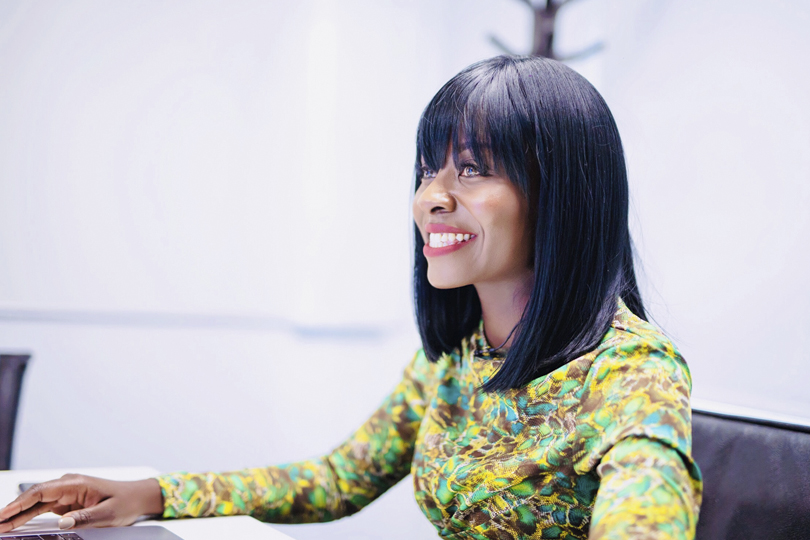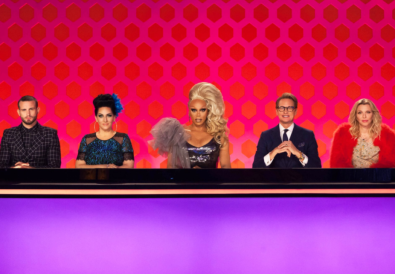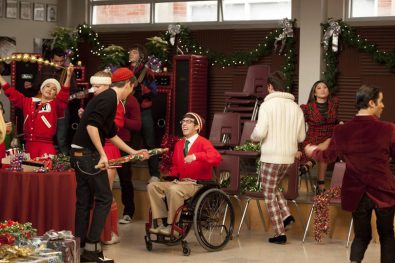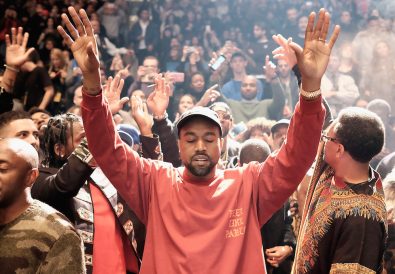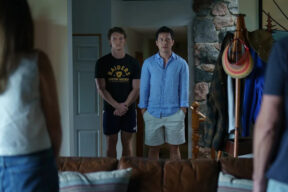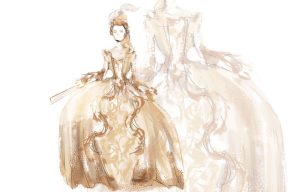Self-appointed “First Lady of NBA Basketball,” Benny Bonsu is the head of women’s sports at GiveMeSport, a mammoth-sized online publisher that boasts over 26 million fans and 81.1 million unique users on social media. Originally from Ghana, she moved to England at the age of 11, and still calls London home, even though her hectic travel schedule keeps her constantly on the move. As one of the first black woman to be a sports editor in the UK, Benny is a fierce advocate for women in the spworts industry and has been disrupting racial and gender standards in the business.
Here, she walks us through her career path, the challenges facing women in the sports world today, and the current state of pay equity in the sports industry, since sports are really popular and people can even do some bets in sites like joker123 online.
Walk us through your career path. How did you get to where you are now, in terms of education and prior experience?
So, my path to where I am now is so different to most people. I’ve always been in sports, even from the age of 11 years old. I technically started in journalism at about 18 years old, when I got to university. But I’ve always competed in sports from a very young age.
My first career was actually in youth work. So, I worked a lot with disadvantaged youths from London, and these are young people that are in trouble or have been to prison. I’d try to help them get their lives back. I worked for an organization called the Princes Trust, which is owned by Prince Charles, and I worked for them for a couple of years. Through that, I gained a keen interest in education.
After I completed my degree, I went into education and I was head of behaviour and also a media studies teacher that also taught sports. I did that for a couple of years, and alongside that, I did some radio, hosting my local community radio show and also writing. So, at that time I was writing about NBA basketball and I did that for a couple of years while I was teaching and hosting on the side.
About six years into what I was doing, my brother and a few of his friends that played in the league suggested I start taking the hosting serious. While I really loved teaching and youth work, I was actually quite good at hosting and writing, and so I’ve always had those two careers going at the same time. I didn’t have the confidence to do it full-time, so I stayed in education for quite a while, about 10 to 12 years. In 2017, I decided to take the plunge and give one up. I qualified as a head teacher, which I think you call a principal.
So, I walked away from that job without a job and then got started hosting, doing work with the NBA and then started working for the BBC on a full-time basis a bit for BT sports and Sky sports. Then, the job at GiveMeSport came up and I became the first female editor in the UK and also the first woman of colour in that position.
What have been some highlights for you in your career thus far? Are there specific moments that you’re particularly proud of?
I think the highlight of my career so far was actually getting this job. Because for me, how women have been represented in the media when it comes to sports has not always been in a positive light. Getting this job gave me the opportunity to change the narrative on how women are represented across the board, whether it’s on TV or newspaper or digital – and change it. And really, to give the women a face and a voice where they can feel confident enough to share their story, and be 100% authentically themselves without apologizing for it, and show what they’re made of.
Some other highlights so far is recruiting about 30 female writers for GiveMeSport because you don’t see that anywhere. You don’t walk into a newsroom and see 20 women sitting there writing about sports. That is huge for me.
My other highlight was this summer I had a chance to host the NBA innovation summit in Africa and sit in amongst the NBA players who actually encouraged me to do this on a full-time basis. And have conversations about how we moved the conversation forward. Yes, we’re talking about women in sports, but how do we that on a global scale. And in Africa, how do we encourage African women to get involved in sports? I think that was a great highlight for me.
And another highlight was being nominated this year as part of the 2019 class of the leaders being recognized as a top leader in sports globally. I was really happy about that.
Have you always been passionate about sports? When did this interest first grow?
Yes, that started from the age of 11. When I came to the UK, I didn’t speak a word of English and what got me speaking was sports. Sports has always been part of my life; I don’t know anything else. At one stage in my life as a young teenager my friends were going out partying and hanging out and I was doing sports. I’d go to school, go to training after school, and Saturday and Sunday I’d be in competition. I’ve never known anything else; sports has always been part of my life and I’m passionate about it.
What’s a typical day like for you?
My day starts at about 4:30 in the morning when I wake up, meditate for half an hour, workout for an hour, and I’m out of the house by 6:00 am. I head to the office and start working while I’m going to the office. I get in, check my emails, and check my meetings for the day quickly. I’ll write maybe three articles before my meeting starts at 10:00 or 10:30 in the morning. I normally have training with my team. So, the girls will come in and we’ll go through articles, talk about breaking stories, what kind of stories we want to cover, editorially what we want to do. The girls go out and get the clips and do production and do the interviews. We come back and discuss how we’re going to edit it and put it together. Normally, we have meetings with media agencies to talk about editorial work that we’re working on and how they can get involved. Then there’s talking to brands. The majority of the time I’m also on panels, talking about the importance of brands getting on board with women’s sports. My day typically wraps up at about 8:00 pm or 9:00 pm and I’m in bed by 9:30 pm. And then the same thing happens and starts all over again. It’s a bit hectic and I can’t survive without at least six cups of tea during the day. I just can’t survive it. It’s a long day but I enjoy what I do so it doesn’t really matter to me.
What do you love about what you do?
I think what I love most about what I do is the fact that sports gave me a life. I can’t say enough that without sports, I don’t know where I’d be. And what I love is that you’re changing the lives of people. And what’s great about doing this now is that we know women are fighting for a voice within the space when it comes to the coverage of women in sports. But what’s really cool about it is educating men about women’s sports. You can tell now that when it comes through our social media channels, it’s a 50/50 split. Men are generally interested to find out more about women’s sports. And that’s what I love about it.
Tell us about the Girls in Sports Foundation. What is it all about and what inspired you to launch it?
Girls in Sports Foundation is an organization that we set up a couple of years back and the idea is really to give access to women and girls when it comes to sports. Sometimes, girls don’t know where to go or they just don’t want to engage in sports, especially when they get near their teen years. And with the current state of social media, they feel that they’ve been judged all the time. It’s an organization that really breaks down those barriers and brings women that are in the spotlight down to the grassroots and really gives young people the opportunity to speak to these women on their level and find out about their stories and about their journeys. Take them away from all the social media and all the backlash that comes with that and really try to help young women and girls with their self-esteem and give them healthy and happy lives through sports.
The idea came to me a couple years back when I was a teacher and I’d talk about my love for sports in the classroom and girls were just like “no I don’t want to do it, Miss.” They had no interest in it, because they felt they were being judged all the time. And I found that really heartbreaking. When girls would say to me that they can’t leave their house and go to the cornershop without makeup, that broke my heart. I thought “we need to do something about this.” So, we set it up and the idea was to bring celebrities and women that these girls look up to to their schools, where you have 100 girls in the room, and for two hours, they have the opportunity to ask the women anything they want. It’s an open forum and a safe space where they can express themselves, share their stories, tell us what’s going on and ask women that they normally wouldn’t be able to reach. They can ask us anything, anything they want to ask us and we’ll be able to mentor and share advice with them.
As an active supporter of women in sports and the business of sports, what challenges do you think still face women in the sports industry today?
It’s still changing a mindset. Yes, things have moved on and we’re still working hard to change the narrative around women’s sports, but it’s really still trying to get brands, trying to change the mindset with some people, even some women, for them to see that it’s important for this to exist. We have many challenges but some that we’re facing right are getting brands on board, changing the look and feel of boardrooms. It can’t be all men anymore. Add women of colour and diverse women in those boardrooms so that the conversation is open. It’s almost like having a United Nations so people understand the importance of having diverse work groups or diverse teams to really change the narrative when it comes to sports.
What are some tangible ways that these conditions or challenges can be improved?
Change your boardrooms. Change your newsroom. Change it so it reflects the society in which we live in now. If we can change those, the challenges that were facing will also change, the narrative will change, and the way the stories are shared becomes very different and is reflective of society.
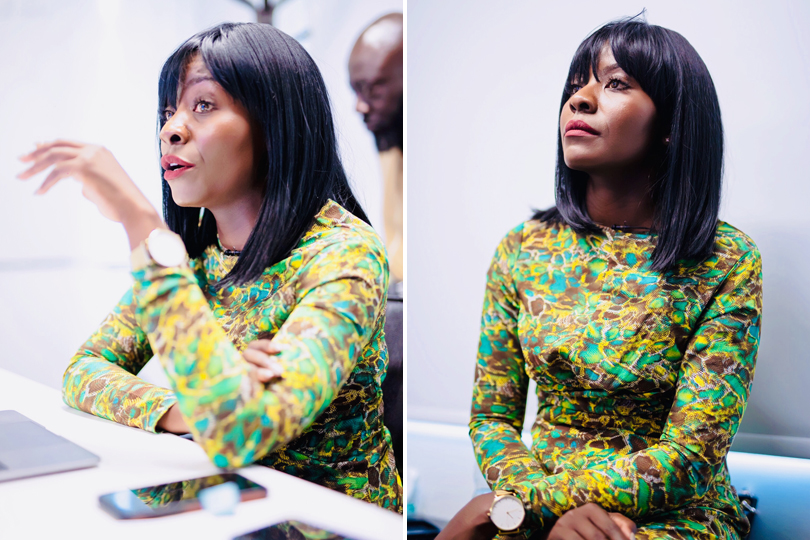
Let’s talk about the state of pay equity between male and female professional athletes. Where are we at in regard to this issue nowadays? What is the current situation?
It’s changing, but we’ve still got a long way to go. Serena Williams is the most successful female athlete that we have and there are a few others, but when it comes to equality you only have to look at American women’s football team to understand that yes, they’ve won all these championships, world cups etc., and they still fighting to get paid the same when the men have not even won one. We’re still going thought that. The thing about me, a woman who’s in a position that some people would consider to be very high, I am sure I am getting paid less than my equals in the same position. We still have to fight; we still have to speak up and we still have to do more in order for it to be equal. I don’t see why women in 2019 still need to argue for why they should be paid equally to what men are being paid. If we have the same job and we’re doing the same thing, and in most cases probably doing it better than the men, why are we paid less? More needs to be done and we need to speak up, and also, we need transparency when it comes to pay. What is going on and who is getting paid what and why. And why can’t we be paid the same. The conversation needs to keep going.
The Women’s World Cup took place this summer and the number of people that tuned in to watch was astounding. You must be happy to see this growing interest in women’s sports?
Yes, I’m very happy to see the growing numbers of women’s sports, but it’s the World Cup, and everyone jumped on board, and everyone was supportive, brands got on board, they were very supportive, but they also gained a lot of money. But that is the conversation that is around women’s football. Now if we’re talking about women’s sports, there is still more work to be done. If we can have that kind of hype around the Women’s World Cup and women’s football, why don’t we have it across all women’s sports?
On your website, you say you’re committed to the empowerment of women and girls through sport. I’d love to hear more about this. In what ways can sports be empowering for women, do you think?
For me, as a woman, the way it is empowering is it that is has helped me get to where I am today. Sports has given me the self-esteem, the confidence, and also the power to be able to look at my fellow women and say: “look, try this out.” I have a whole bunch of girlfriends and a whole bunch of people I’ve worked with over the years that didn’t have the confidence or the self-esteem to go after their dreams. And for me it starts with little things, like going to a dance class together, going to the gym together, having an open forum on conversation at the gym or in the field or at a football pitch.
One, it helps keep them healthy. Two, it’s something that gives them confidence about their body and the skin they live in and once they have that confidence and self-esteem, it helps boost their confidence to go after the dream of what they want to go after. That’s why I do this. I’ve never been shy about talking about how sports have helped me in my life. Sports taught me how to speak English, It gave me the confidence to step out of my skin and be confident as a black woman, and to go after everything I want. Sports helped me be where I am now.
What sorts of standards are you trying to disrupt in the industry, and what challenges have you faced in the industry as one of the first black women to be a sports editor?
The first thing I said when I got this job was that if you’re bringing me in just to bring up the number of women, I don’t want the job. If you’re bringing me in because I’m a black woman, then I don’t want this job. And when I came in, my bosses were very supportive and they’re still very supportive. The way I’m disrupting the industry is actually by showing women as we are. We’re not trying to edit it to make women look a certain way, we’re not trying to make it PC so everyone else feels comfortable about it. We’re telling stories the way they should be told. The truth. We’re being bold, we’re being honest, we’re being disruptive, and we’re being unapologetic, because over the years, the way women’s sports were being covered was almost like we should be apologetic and thank our broadcasters for giving us the opportunity to speak up. We don’t need to be doing that. By right we should be there. How is it that there’s only 7% of coverage for women sports? Why are we doing that?
And also, for us at GiveMeSports Women, it’s really important that in this space that we do have, we cover sports the way we see sports to be, the way women enjoy sports. And we’re disrupting because we’re not falling in line with what everybody’s doing. Everyone else falls in line because they want to be on the good side of the brands, and they want to be seen as doing stuff and making noise when its required. We make noise all year round about all sports, from swimming to cycling to shooting to basketball to net-ball to football to rugby to gymnastics. We get excited about every single sport. We’re not just excited because its football. We get excited about every sport because every woman counts. We talk about every woman from every walk of life. Olympic sports, para-Olympics sports—it’s all important, because these are stories that we want people to hear. It’s important when you jump on board that you’re prepared to be part of that woman’s story. You can’t jump in and out. And that’s what we’re here to do. We’re disrupting the industry because we want to be on a journey with the women, we want the young girls who are growing up now at the age of ten in 15 and 20 years from now to say “you know what? I started loving sports when I saw GiveMeSport Women and the way the stories were told to me.”
What is your advice to other women who are aspiring to a career in the sports industry?
Go for it! Don’t be intimidated by the men, don’t be intimidated by the industry, just go for it. We need more of you. If there’s more of us, it makes my job easier. So then I don’t have to fight to be there. I don’t have to fight for your stories to be told. I don’t have to justify why we need to be in the space. Go for it and reach out to other women in the industry and tell them that you want to be in the industry and ask them for mentoring, ask to go for tea with them. It’s important and we need you. I don’t want to be searching to be finding the next Benny Bonsu or the next Jamil Hill or the next Rachel Nichols. Where are you? We need you to join us.
What’s next for you?
I don’t know about this question because right now, I’m enjoying what I’m doing. And I think for me, if we’re talking next-next, it would really be giving all those women on other continents a voice: Africa, Asia. What are they doing when it comes to women’s sports, how do we integrate them, how do we get them involved, how do we also get brands to understand that they also have to be part of this journey from the beginning and not just jump in and out when it suits them? They need to be part of it. Women have a huge spending power. So, for me, next it’s really trying to inspire brands to be bold and jump on board when it comes to women’s sports but also really trying to integrate African women, Asian women, and women from around the world who really enjoy sports too.
Is there anything else you want to talk about that we didn’t already cover?
No, but pay attention to Africa when it comes to NBA basketball. The Basketball Africa league is going to be a huge thing. I also want you to check out the Seed Project and Giants of Africa. Those are two causes I’m really passionate about on the continent and I’m really trying to engage girls in sports and rally to change the narrative. As an African woman who could easily have been that child you see on TV that is selling water, begging for money, it’s really great to have programs like these trying to change the narrative for us.

